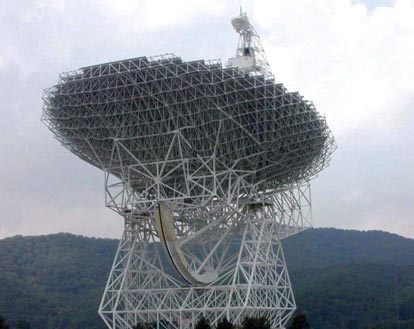A national radio quiet zone was established in Green Bank, West Virginia in 1958 to house the world’s largest fully steerable radio telescope – the Robert C. Byrd Green Bank Telescope. The telescope successfully works due to the lack of interference from other transmissions.
“Electrosensitives,” flocked to the area for more than 10 years. “Electrosensitives” are people who have illnesses and attribute the cause to electromagnetic fields and radiation from electronic devices.
The National Institute of Science’s budget is stretched and it is considering closing the observatory that houses the Byrd Telescope. “Electrosensitives” currently living in Green Bank’s “Quiet Zone” fear their refuge may be in jeopardy; if the observatory closes, that will be the end of the quiet zone.
Residents voice concerns about the possible closing of the observatory and note that there will be no going back once a mobile phone tower is built in the area.
“It’s almost like a national park. Let’s say Yellowstone in Wyoming. If Yellowstone were to disappear, you would never get Yellowstone back,” Mike Holstine, of the National Radio Astronomy Observatory, said.
A decision will be made by 2017.






